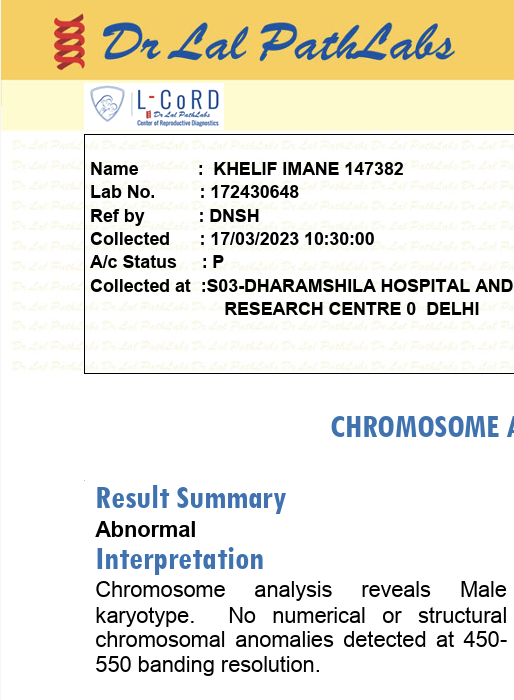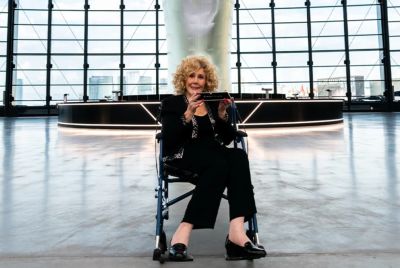Officials Say Report Claiming Imane Khelif Is Biologically Male Is 'Illegitimate', Blame Russian Smear Campaign
Officials call the chromosome report on Imane Khelif "illegitimate" and blame a Russian-led smear campaign.

Olympic officials are pushing back against explosive claims that Algerian boxer Imane Khelif is biologically male, calling a recently leaked chromosome report 'illegitimate' and possibly part of a Russian-led smear campaign.
The controversy emerged after Khelif's gold-medal win in the women's welterweight division at the 2024 Paris Olympics, fueling renewed debate over gender eligibility in elite women's sports.
However, international sports authorities now suggest the report was never independently verified and may have been weaponized to discredit the athlete and destabilize the competition.
IOC Dismisses Allegations, Defends Athlete
Despite being previously disqualified by the International Boxing Association (IBA), Khelif went on to compete at the Paris 2024 Olympics and won gold. The International Olympic Committee (IOC) has defended her participation, emphasizing that no verified evidence supports claims she is biologically male.
IOC officials suggest that the report's leak may be tied to a politically motivated disinformation campaign, with suspicion falling on Russian sources known for influencing global sports narratives.
Khelif's victory drew mixed reactions. Some competitors, including Italy's Angela Carini and Mexico's Brianda Tamara Cruz, expressed concern about fairness and safety, but Olympic authorities stood by Khelif's eligibility.
Unverified Chromosome Report Fuels Misinformation
The controversy was triggered by a leaked medical report allegedly originating from a 2023 chromosome test conducted in New Delhi. The report, published by American journalist Alan Abrahamson, claimed that Khelif's karyotype revealed an XY chromosomal pattern—typically associated with biological males.

However, Olympic officials have stated that the test was never independently authenticated and may have been manipulated or misrepresented. The IBA's decision to bar Khelif from the 2023 Women's World Boxing Championship relied on this report, a move now seen by critics as premature and influenced by flawed or politicized science.
The leak went viral, amplifying public discourse on genetics, gender identity, and fairness in competition—but also spreading potentially inaccurate medical information.
Legal Action and Online Abuse
Following her Olympic success, Khelif became the target of widespread online abuse and speculation. High-profile figures such as J.K. Rowling and Elon Musk weighed in on social media, further intensifying public scrutiny.
In response, Khelif filed a criminal complaint in France for defamation and cyberbullying, insisting she has always identified and lived as a woman. Her legal team contends that the leaked test and resulting smear campaign are part of a broader effort to damage her reputation.
They argue that the case exemplifies how misinformation and politically charged narratives can be weaponized against athletes, particularly those from underrepresented regions.
New Rules in the Works, But No Clear Policy Yet
Amid the fallout, World Boxing—the new global governing body for Olympic boxing—is reportedly developing updated gender eligibility policies, including the potential use of genetic testing. However, no binding rules have yet been implemented.
According to The Guardian, athletes like Khelif would be subject to future testing under draft guidelines. For now, eligibility remains a case-by-case judgment, leaving room for controversy and differing interpretations across federations.
World Boxing asserts that updated regulations will be necessary to protect fairness in the women's division, but critics warn that such policies must also safeguard athlete dignity and avoid being misused for political purposes.
Gender and Fairness in Sport: A Broader Debate
Khelif's case has reignited global debate on how to balance biology, gender identity, and fairness in sport. Advocates for stricter biological definitions argue for clearer eligibility rules, while others emphasize inclusion, human rights, and the dangers of reductive testing practices.
This incident highlights how unverified leaks and misinformation campaigns can deepen divisions, complicate policymaking, and endanger the wellbeing of athletes caught in the crossfire.
Conclusion
Imane Khelif's Olympic triumph has become a flashpoint in the ongoing debate over sex, gender, and fairness in athletics. While no definitive scientific judgment has been made public, officials now widely reject the validity of the chromosome report and view the controversy as rooted more in geopolitics than credible science. Her case will likely remain central as the sports world navigates how to ensure integrity without falling prey to manipulation.
© Copyright IBTimes 2025. All rights reserved.





















